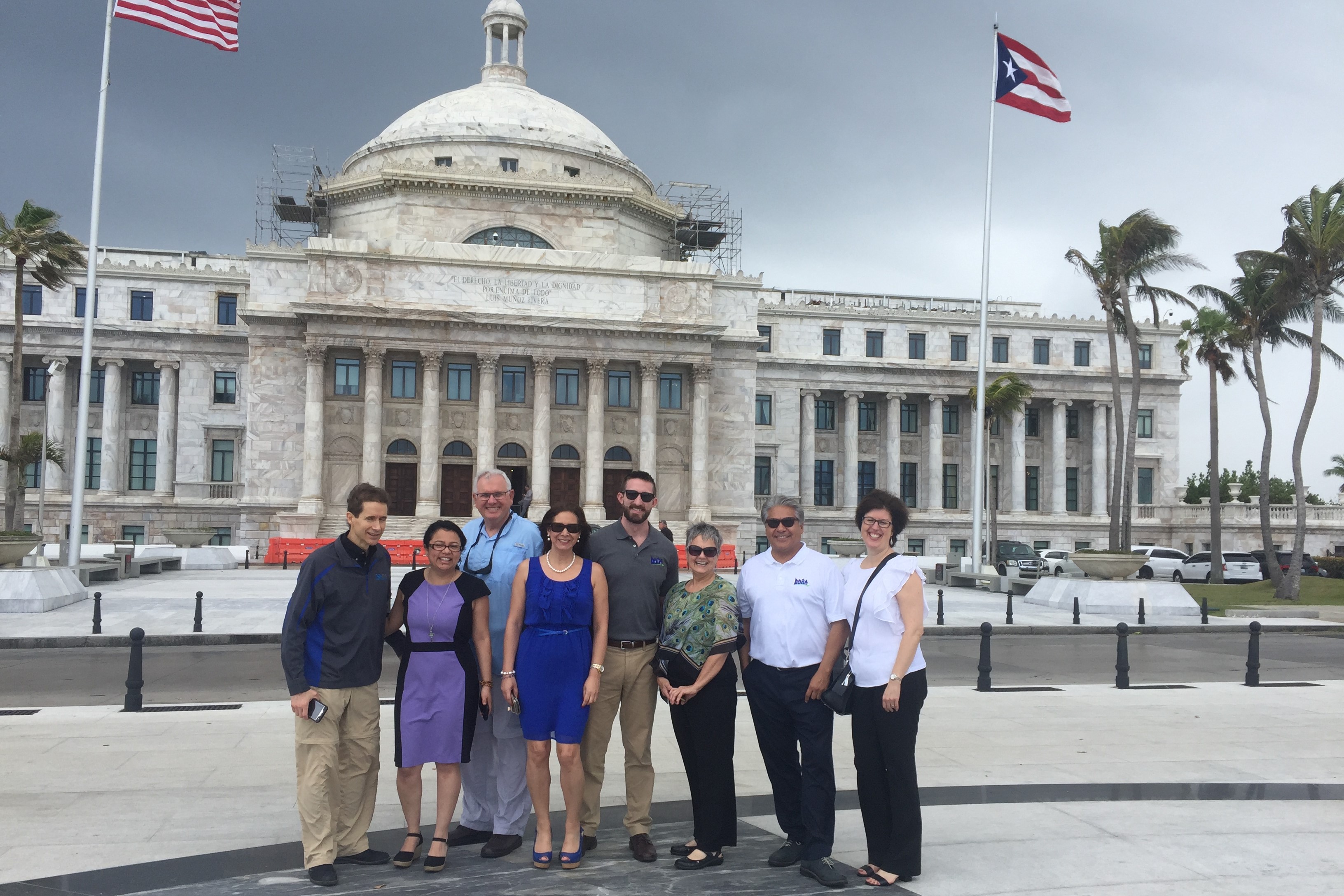
The popular uprising that resulted in the resignation of Puerto Rico Gov. Ricardo Rosselló was about more than the U.S. commonwealth’s longstanding culture of corruption and mismanagement of public funds and services, the poor response to the devastation of Hurricanes Maria and Irma, or the arrogance displayed in derisive chat messages among the governor and other top officials. The mass street protests were an expression of popular anger over the commonwealth’s lack of competent, accountable, democratic government.
There is historical precedent that offers optimism about the outcome of such a local democratic movement. Over 100 years ago, a grassroots reform movement took hold in the mainland U.S. to press for an end to patronage and nepotism in government employment. It led to the establishment of new structures of government that included professional city managers responsible for overseeing the delivery of essential public services, along with merit-based hiring and systems we now take for granted.
Transforming a partisan, corrupt political culture is like turning a battleship. Small adjustments can lead to a new direction and major improvements over time. While partisanship is intense in Puerto Rico, there are signs that local leaders are embracing new strategies. They should be supported. Puerto Rican mayors and administrators have expressed interest in innovations like shared services, recognizing the potential to deliver high-quality services in a more cost-effective way.
Another hopeful sign is that some of the commonwealth’s mayors are exploring the establishment of a bipartisan Puerto Rican League of Cities. Such an alliance could promote good governance and share best practices. It also has the potential to become a powerful voice for communities, particularly if it includes finance directors, planners, municipal administrators and municipal attorneys on its executive committees like many of the most effective municipal leagues on the mainland.
ICMA has made a commitment to support greater local government professionalism in Puerto Rico following its work on a 2018 project assessing municipal governance and services undertaken as part of a Rand Corp. contract funded by the Federal Emergency Management Agency (FEMA). ICMA and the Institute for Building Technology and Safety assembled a team of volunteers who worked with FEMA planners and with students and faculty from the University of Puerto Rico to conduct the assessments of the commonwealth’s 78 municipalities. These data and the interviews with local leaders helped inform a roadmap toward improved resilience.
The time spent interviewing mayors and their professional staffs also shed light on what the communities have endured as well as the challenges they face in the long road to recovery. In August, ICMA will be sending several of its leaders to lend their expertise on such issues as smart cities, shared services and the role of women in government at “Experiencia Puerto Rico 2019,” an international conference for Latin American mayors and local leaders. One of the conference topics is “The state versus local governments.”
That should be a lively session, given the traditional tensions between many central governments and their local jurisdictions, but also because of the widespread perception that the Commonwealth of Puerto Rico has moved so slowly to address the devastation of Maria and Irma. Puerto Rico’s municipalities and a number of community organizations have taken considerable initiative on their own to restore services. Still, little of the $14 billion in disaster aid allocated so far by the federal government has reached them.
Why not distribute recovery funds directly to qualifying municipalities? Congress could direct FEMA to name a director empowered to distribute the aid, or Congress could direct FEMA assistance through the federal oversight board it established in 2016. Such an approach would get resources to communities more quickly to repair and harden their infrastructure, enhancing their preparedness before the next natural disaster strikes.
While some argue that it is easier for the federal government to funnel support to just one government, the commonwealth, a better long-term strategy is to build a foundation with municipalities that are ready to assume responsibility for more accountable government. Larger municipalities that have a credible record of financial accountability and the capability of meeting federal grant-tracking requirements could serve as the grant administrator for smaller jurisdictions.
Such a bottom-up strategy, striking a balance between decentralization and regional solutions, would pay dividends over time. Puerto Rico’s communities can thrive as long as they receive the financial and professional support they need to move forward. Those seeds of change could be just what the larger commonwealth needs to get on track toward a future far different from the failures that brought all those protesters out into its streets.
This article originally appeared on Governing.com.
New, Reduced Membership Dues
A new, reduced dues rate is available for CAOs/ACAOs, along with additional discounts for those in smaller communities, has been implemented. Learn more and be sure to join or renew today!
